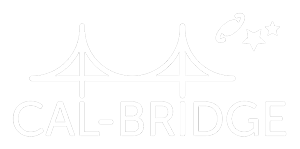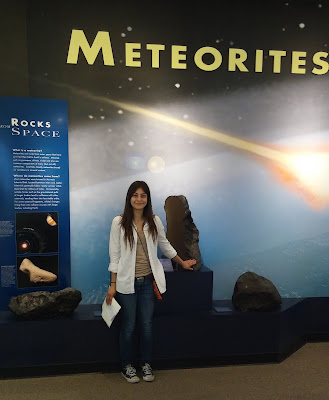Published: June 22, 2017
Publication: Texas Astronomy Undergraduate Research
Author: Caitlin Casey
Scholar Spotlight: Adrianna Perez
We are thrilled to share with you the first of our 2017 TAURUS Scholar Spotlights! Adrianna Perez is a senior at California State University, Dominguez Hills where she majors in Physics. Adrianna participated in the Banneker-Aztlán Institute last summer working with Dr. Jill Naiman and Prof. Jorge Moreno and joins us for TAURUS this summer. Adrianna is also a CAMPARE and Cal-bridge Scholar. She was interviewed by her research mentor, Dr. Chao-Ling Hung.
CLH: Can you tell me about yourself? What is your story?
AP: I’m from California, live in Bellflower. Basically my whole life in Bellflower, went to Bellflower high school, graduated from there. Right out of the high school, I went to Cal State Dominguez Hill as a first generation college student with already my Physics major declared, although I was still unsure whether that was what I wanted to do. I took Physics in high school, and I did really well in it and I thought it was fun, so I went with that :). I was like, OK, I like Physics, so I feel like that’s a good place to start.
So I went to Dominguez Hills, start taking my Physics classes there, and really started to like it. The problems were harder at first. So I was a little, oh no, what if I can’t do this. But I just kept working at it, got better at it, and really started to like it. And then, just space was cool, so that’s how the Astronomy part came in. But we don’t have an Astronomy department at my school, so I wasn’t really exposed to it.
It wasn’t until Dr. Moreno came to my school and gave a talk about his galaxy mergers, that I learned about research in Astronomy. And he mentioned the Banneker-Aztlán Institute, and I was really interested. So after his talk, I spoke to him. He encouraged me to apply. So I did that and got accepted, and then went to Harvard, and really liked it. Now I’m positive that I really want to be in Astronomy.
CLH: Can you share a little bit about of your future and career goals?
AP: I think a lot about becoming a professor, but I’m not entirely sure. I know I want to go to graduate school and get a PhD. After that, maybe do a postdoc, and after that, get into academia, or try to be a faculty member. I feel like I might go down that path, but I’m still open to the possibilities. You don’t necessarily have to go to academia, there are other options. But I feel like, that is where I will end up.
CLH: So what brings you to the TAURUS program, and how do you think the TAURUS program will help you to reach your career goals?
AP: I was interested in TAURUS because at AAS, Dr. Moreno was telling me that Caitlin was gonna be here and the TAURUS people were going to be here. So we had a joint lunch with them, the Banneker-Aztlán people had lunch with the TAURUS people. I got to speak with the previous scholars and I asked how they liked it, and they were all really happy and excited and tell me all these great things. So I’m like, wow that sounds really good. Especially because I really liked Banneker and I wanted to be in something that’s similar. Because I know some REU can feel more competitive, and lonely. You’re just in the office, working by yourself and nobody wants to help you. So I didn’t want to be in that kind of environment. I wanted to be in a place that would feel similar to the one I was already in. And the previous scholars spoke very well of it. I met Caitlin there, and spoke with her. She said, sure, go apply! So I applied. I heard the program had a goal of diversity and inclusion and I really liked that. That’s up and coming in Astronomy, people are trying to change that. So I would like to be in part of the program where that is included.
CLH: So how would success in this TAURUS program look like to you?
AP: I hope to make many new friends. And I hope to get somewhat far in the research, and just to be able to answer that question now. And I want to give a good talk at the end! :) I want to have a nice talk with nice pictures, and explain myself well. I used to have a pretty big fear of public speaking. So I want to be able to communicate, and give a presentation without running off the stage. :)
CLH: I heard from Dr. Moreno that you gave an extremely good talk at the final presentation last year. Congratulations!
AP: Thank you. I worked really hard. We had a speech class once every week. But I would go a bit earlier, that way, I will practice before everybody else would come to, just to get comfortable saying it on stage. I can handle speaking in front of a couple people, but when the group gets bigger than five, then it’s like, oh no!
CLH: Yeah, the community here would definitely help and provide feedback, and you can give an even better talk in the end.
AP: Yeah, I hope to top my previous talk, and that would be a success to me.
CLH: Just to change the gear a bit. How do you learn best (e.g., hands-on experience, reading literature about a topic, verbal explanations, process diagrams, etc.)? What is the most useful kind of assistance your mentor can provide?
AP: I think I learn the best from reading and listening. So I can read something and if I don’t understand it right away and get some kind of verbal clarification, that would be good. Sometimes drawing pictures helps a lot. But I don’t know if I would consider myself a hands-on person. Because I normally don’t like to build, or do things from my hands, I feel uncoordinated. :) So that doesn’t work too much.
Something I like is smaller celebrations. Even if it’s like a small goal, like I read half the paper, or I got a plot to work. These small things are what make me feel good. Yes! It might not be something big or fancy, but it’s progress, and I feel that’s worth celebrating.
CLH: Can you talk about what challenges and obstacles have you faced in your career? How have you overcome these challenges?
AP: I’ve already briefly mentioned the public speaking one. I feel like it’s my biggest obstacle. Because I can get really shy, nervous, and anxious sometimes, and withdraw into myself, don’t talk to anyone and go out much. When you need any help, you should be able to ask. If you don’t ask, then nothing will happen. That’s the biggest obstacle is to come out and say I need help.
CLH: What are you most proud of?
AP: I am proud that I can make little movies. Something that makes me proud is that I make little bunch of snapshots, and compile them up into a little movie. I think it’s really cool.
CLH: If there are other freshman or sophomore students who are interested in following your path, what advice would you give to them?
AP: I feel like I was lucky that Dr. Moreno came to my school, especially because it is small. But for other places, I feel like you would at least want to look into places you would be interested in doing research. If somebody is interested in going to Harvard or here at UT Austin, then I’d say try to get in contact with somebody here or I would put them in contact, introduce them to somebody. Let them talk about what that student’s research or career goals are. And hopefully, they will get a better idea if that’s what they want to do or not.


